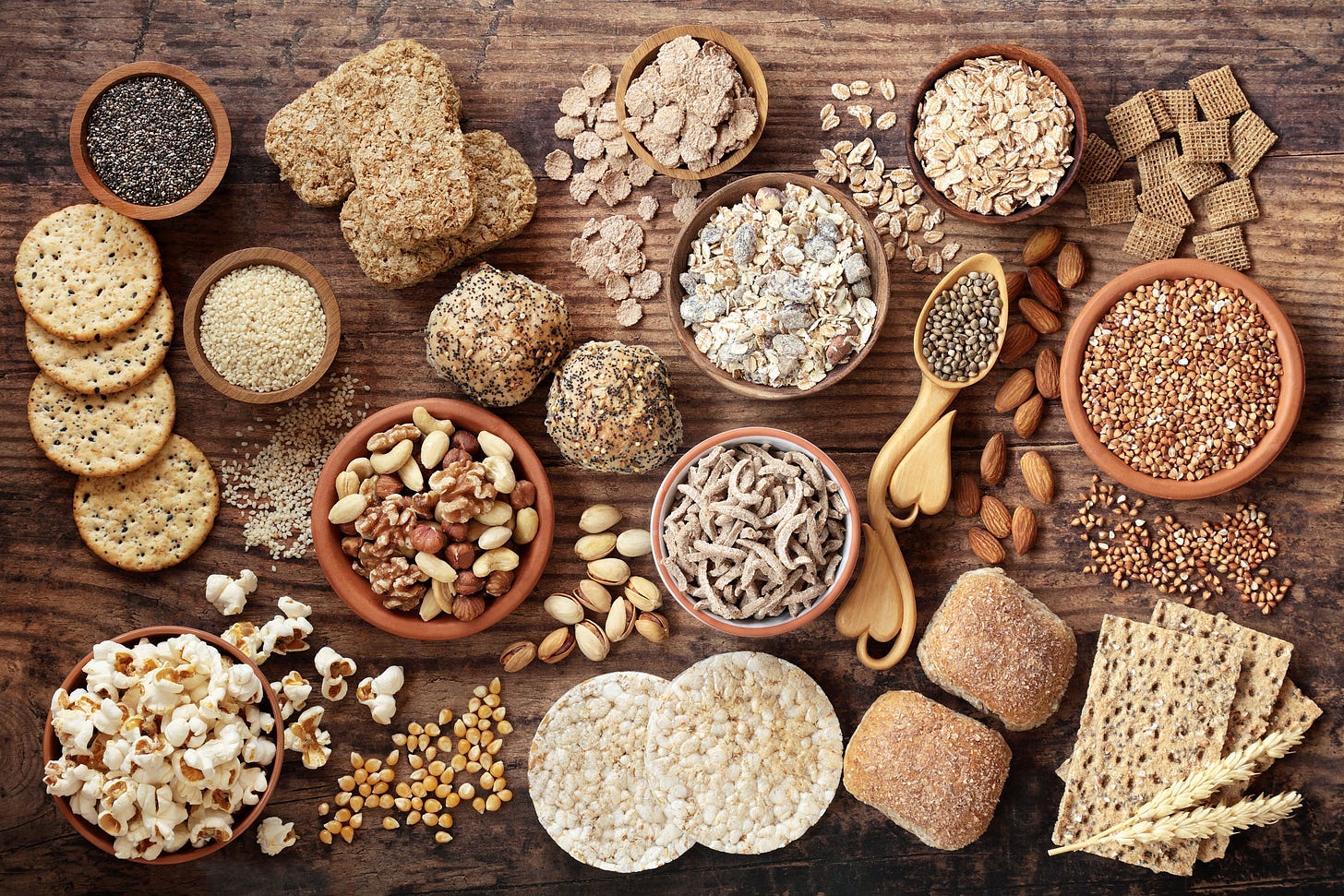Beyond Burgers: The Rise of Functional Plant-Based Proteins and Sustainable Superfoods
Plant-Based Future

The interest in plant-based diets is on the rise, driven by a combination of factors including health concerns, animal welfare considerations, and environmental sustainability. While meat substitutes have been around for decades, there's a shift towards functional plant-based proteins. This article covers how these products offer more than just mimicking meat; they are packed with nutrients and health benefits.
‘‘Functional plant-based proteins and sustainable superfoods offer not just nutritional benefits, but also a pathway to a more sustainable food future. Embracing these options is not just a choice for personal health, but also a step towards environmental stewardship.’’
The Shift Towards Functional Plant-Based Proteins
Functional plant-based proteins are derived from plant sources like legumes, seeds, and whole grains. Examples include tempeh, seitan, lentils, chickpeas, and black beans. Compared to traditional meat substitutes that are often highly processed and contain limited nutrients, functional plant-based proteins are a complete source of protein and offer additional health benefits. They are typically lower in saturated fat and cholesterol, and higher in fiber, vitamins, and minerals. Their versatility allows for incorporation into various dishes, from stews and stir-fries to burgers and pastas.
The Emergence of Sustainable Superfoods
Sustainable superfoods are nutrient-rich plant-based foods that can be grown with minimal environmental impact. Quinoa, chia seeds, and spirulina are just a few examples. These superfoods are packed with essential nutrients like protein, healthy fats, vitamins, and minerals. Cultivating quinoa requires less water than traditional grains, while chia seeds can thrive in various climates with minimal resources. Spirulina, a blue-green algae, is a complete protein source and is grown in controlled settings, making it a highly sustainable option. Including superfoods in your daily diet can significantly improve your health and contribute to a more sustainable food system.
Addressing Common Misconceptions
There are many misconceptions surrounding plant-based diets. One common concern is that plant-based proteins are not sufficient to meet protein needs. However, a well-planned vegan diet that incorporates a variety of plant-based proteins can easily provide all the essential amino acids your body needs. Additionally, plant-based protein sources tend to have a lower environmental impact compared to animal-based proteins. Livestock farming is a major contributor to greenhouse gas emissions and deforestation. Choosing plant-based proteins can significantly reduce your dietary footprint. Finally, concerns about affordability and accessibility of functional plant-based proteins and superfoods are being addressed by a growing number of brands offering these products at competitive prices and in mainstream grocery stores.
The Role of Functional Plant-Based Proteins and Sustainable Superfoods in Mitigating Climate Change
The rise of plant-based proteins and superfoods has the potential to play a significant role in mitigating climate change. Animal agriculture is a major contributor to greenhouse gas emissions, deforestation, and water pollution. By reducing our reliance on animal products and opting for sustainable plant-based proteins, we can significantly reduce our environmental impact. Furthermore, these plant-based options often require less water and land to produce, making them a more sustainable choice. As demand for plant-based products continues to grow, production methods are constantly being improved to meet this demand in a sustainable way.
Consumer Trends and Future Outlook
The demand for plant-based protein products is on the rise, driven by a growing awareness of the health and environmental benefits. This trend is fueling innovation in food technology and product development. Companies are constantly developing new and exciting plant-based options that mimic the taste and texture of meat, while offering superior nutrition and a lower environmental impact. As consumers become more conscious of the impact of their dietary choices, the plant-based food industry is expected to continue to grow and innovate.
Conclusion
The rise of functional plant-based proteins and sustainable superfoods is a positive development for both personal health and environmental sustainability. By incorporating more plant-based options into our diets, we can improve our health, reduce our environmental footprint, and support the continued growth of this innovative and sustainable food industry.
Sources:
Plant-Based Diets for Sustainable Weight Management: https://www.ncbi.nlm.nih.gov/pmc/articles/PMC5466943/)
The Environmental Impact of Food Production: https://www.fao.org/gift-individual-food-consumption/methodology/indicators-and-summary-statistics/environment/en
Climate Change and Animal Agriculture: https://www.ewg.org/areas-focus/farming-agriculture/climate-agriculture
Visit Our Amazon Store!
All sales of our Vegan Products help promote animal rights worldwide!
General Resources
Books:
Dominion: The Power of Animals in Nature and in Our Imagination by Matthew Scully
Animal Liberation by Peter Singer
Eating Animals by Jonathan Safran Foer
A Billion Hungry Mouths: Feeding the World Without Consuming the Planet by Colin Tudge
Websites and organizations:
Documentaries:
Articles:
"The Case for Animal Rights" by Tom Regan
‘‘Why We Love Dogs, Eat Pigs, and Wear Cows: An Introduction to Carnism’’ by Melanie Joy
‘‘Animal Rights: The Abolitionist Approach’’ by Gary L. Francione
‘‘Fellow Creatures: Our Obligations to the Other Animals’’ by Christine Korsgaard
Seeds of Compassion: Finding Jesus Christ in a Vegan World by Michael Corthell
Receive a single informative article daily at 12:01 AM by email. Explore my homepage with exciting vegan and plant-based news content and delightful and delicious recipes for additional updates. Stay connected to the vegan world and all it has to offer.
Visit The Vegan Project Global our Facebook page for more vegan outreach and education.
Also, visit our new YouTube channel
The information on this vegan/plant-based blog is for general informational purposes only. It is not intended as legal, medical, or professional advice. Readers should consult with appropriate professionals for specific advice tailored to their situation. The blog owner is not responsible for any reliance on the information herein.




